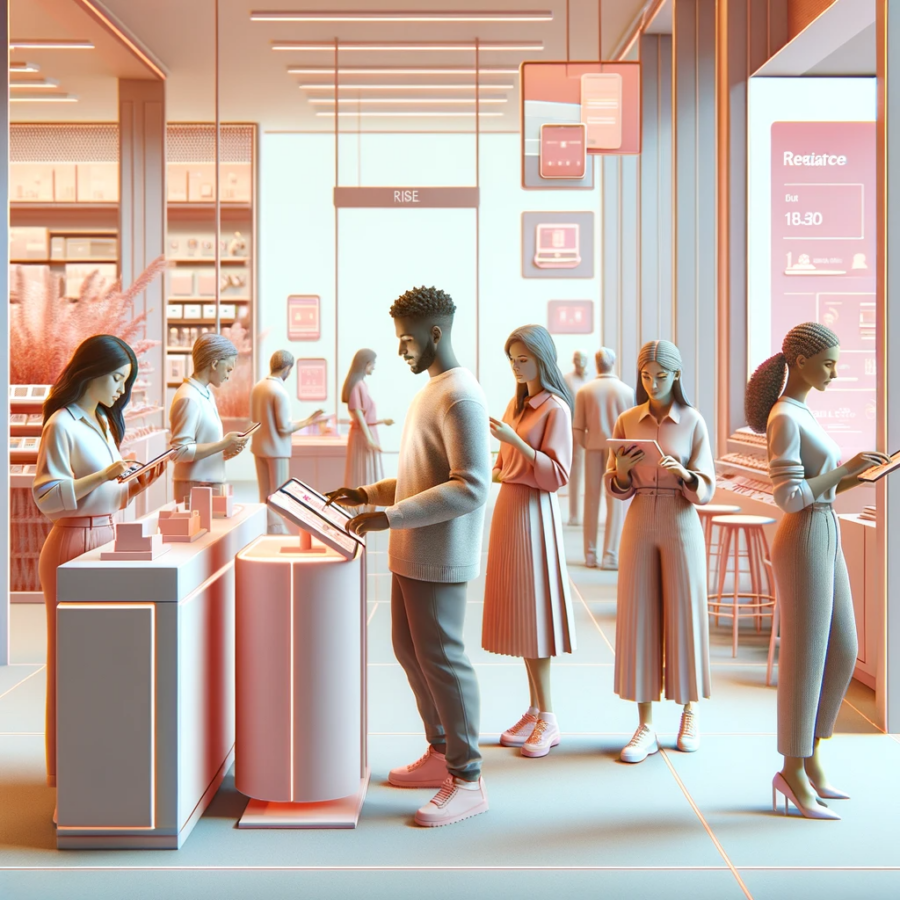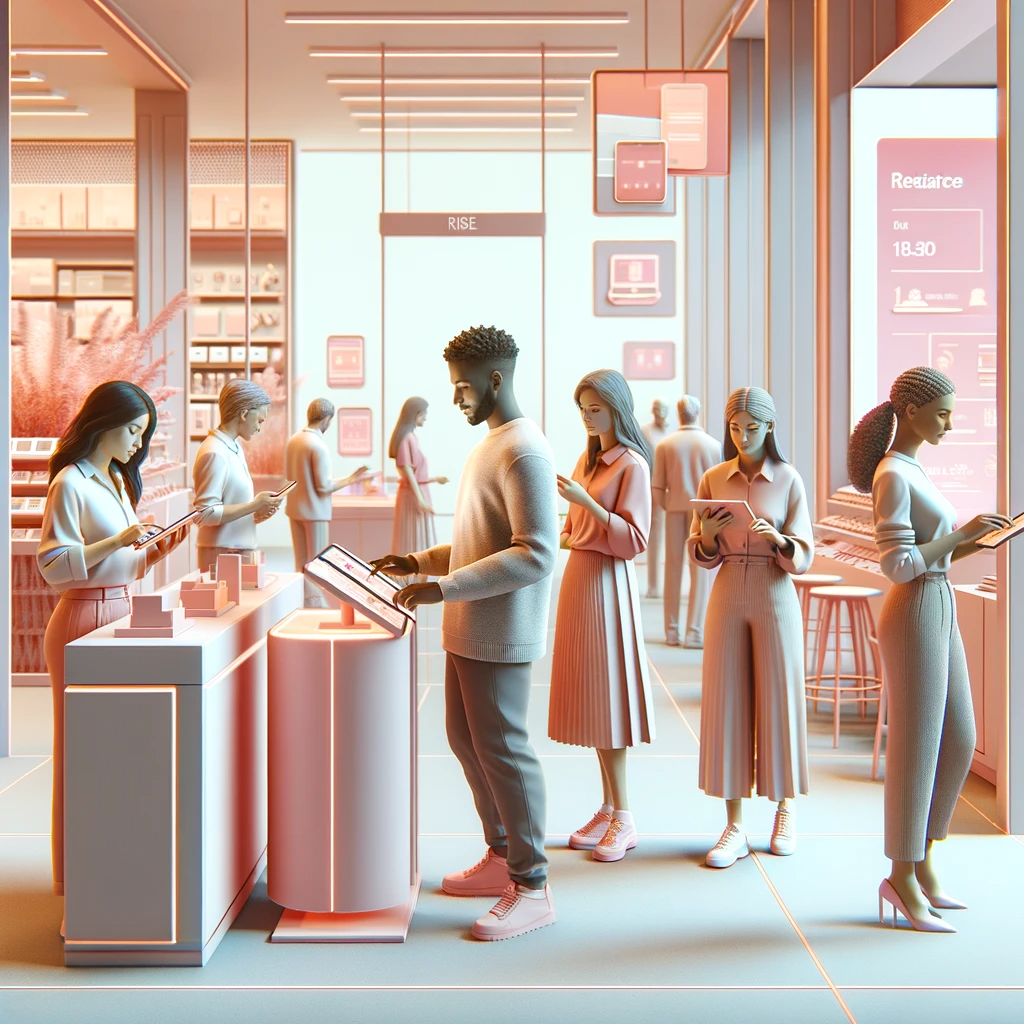The Rise of Omnichannel Retail

Creating a Seamless Shopping Experience
In today’s fast-paced world, consumers are no longer confined to a single shopping channel. The rise of digital technology and changing consumer preferences have given birth to a new era in retail: omnichannel shopping. In this blog post, we’ll delve into the key trends driving the omnichannel retail landscape, backed by studies and statistics to support our insights.

Understanding Omnichannel Retail
Omnichannel retail refers to a seamless shopping experience that integrates multiple channels—physical stores, online platforms, mobile apps, and more. The aim is to provide customers with a consistent and cohesive shopping journey across all touchpoints. According to a recent study by Deloitte, 78% of consumers engage in omnichannel shopping, making it a dominant retail trend. This shift in consumer behavior has significant implications for shopping mall managers, who must adapt to this evolving landscape to stay competitive.
The Mobile Influence
Mobile devices play a pivotal role in the omnichannel retail ecosystem. A study by Statista reveals that mobile commerce accounted for 45% of total e-commerce sales in 2023. Shopping mall managers can’t afford to ignore this trend as it directly affects how shopping malls must engage with their customers. Shoppers expect to use their smartphones to research products, compare prices, access discounts, and even make purchases. Hence, it’s crucial for shopping mall managers to adapt to this mobile-centric shopping environment.
Enhanced Personalization through AI
Artificial Intelligence (AI) is a game-changer in the realm of personalization. A report by Accenture suggests that 91% of consumers are more likely to shop with brands that provide personalized recommendations. The integration of Artificial Intelligence (AI) into retail personalization strategies is indeed transforming the consumer shopping experience. Enhanced personalization through AI not only meets but often exceeds consumer expectations, leading to increased brand loyalty and sales. Find out more about omnichannel loyalty here.

Data-Driven Decision-Making
Data is the lifeblood of modern retail, and shopping malls are no exception. To remain competitive and relevant, shopping mall managers must leverage data-driven insights to make informed decisions. McKinsey reports that retailers using data-driven insights for decision-making can increase their operating margins by up to 60%. These statistics demonstrate the transformative potential of AI-driven personalization for shopping malls.
Seamless Checkout with Contactless Payments
The COVID-19 pandemic accelerated the adoption of contactless payments, which continue to be a preferred choice for consumers. Mastercard found that 74% of consumers intend to continue using contactless payments. This shift has profound implications for shopping malls. To cater to the preferences of their customers, shopping mall managers must ensure that their payment systems seamlessly integrate with contactless technology. Providing a safe and convenient checkout experience is paramount in today’s retail landscape.
Sustainability Initiatives: Meeting Consumer Demands
Consumers are increasingly concerned about sustainability. NielsenIQ and McKinsey & Company’s analysis of US sales data showed that products with ESG-related claims are gaining traction. Simplaq’s loyalty programs can incorporate features that reward eco-friendly shopping behaviors, aligning with the growing demand for sustainable options.
Augmented Reality (AR) for Immersive Shopping Experiences
AR is transforming the way consumers interact with products. A study by Nielsen indicates that 51% of consumers are willing to use AR for shopping. This trend presents a unique opportunity for shopping malls to align themselves with sustainability initiatives. By incorporating features that reward eco-friendly shopping behaviors, shopping mall managers can attract environmentally conscious consumers. For instance, offering incentives for using reusable shopping bags or purchasing sustainable products can resonate with a growing segment of the market.
Blockchain Security and Loyalty Programs
Blockchain technology ensures the security and transparency of loyalty programs. McKinsey’s report highlights that blockchain can save businesses at least $50 billion in B2B transactions by 2023. Simplaq’s loyalty mobile apps leverage blockchain for secure and fair reward distribution, giving customers confidence in their loyalty rewards.
Here we summed up some key aspects of omnichannel retail:
- 1. Seamless Integration: Ensuring a consistent and integrated customer experience across channels, including branding, pricing, and inventory.
- 2. Customer Experience: Focus on enhancing the customer experience, making it easy and seamless for customers to transition from one channel to another.
- 3. Data Utilization: Leveraging data analytics to understand customer preferences and behaviors, which can be used to tailor the shopping experience.
- 4. Personalization: Offering personalized experiences based on customer data, including personalized marketing, recommendations, and customer service.
- 5. Inventory Management: Efficient inventory management across all channels, enabling visibility of stock levels and location in real-time.
- 6. Mobile Optimization: Ensuring mobile-friendly interfaces as consumers increasingly use smartphones for shopping and product research.
- 7. Social Media Integration: Utilizing social media platforms not only for marketing but also as shopping channels (social commerce).
- 8. Customer Service: Offering consistent and efficient customer service across all channels, including in-store, online chat, email, and social media.
Simplaq’s approach
In the dynamic world of retail, the rise of omnichannel shopping is reshaping customer expectations. Shopping mall managers must adapt to this evolving landscape. With loyalty mobile apps that leverage AI, data-driven insights, contactless payments, and more, Simplaq empowers shopping malls to thrive in the era of omnichannel retail. By understanding consumer preferences, enhancing personalization, and prioritizing sustainability, shopping mall managers can create a shopping experience that keeps customers coming back.
The future of retail is omnichannel, and the key to success lies in embracing technology, data, and customer-centric strategies. By doing so, shopping mall managers can foster enduring customer relationships, drive revenue, and stay ahead of the competition.
Try our Omnichannel Marketing Software now!















